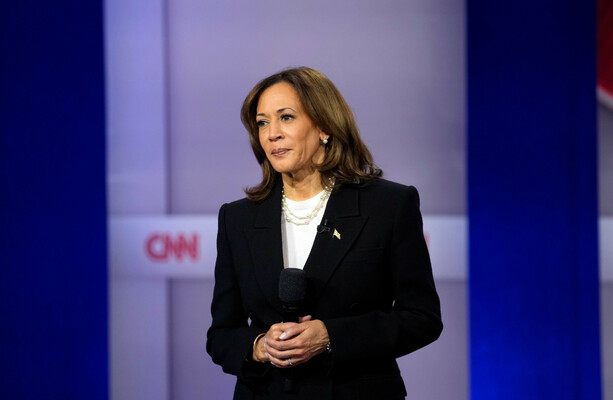Headline: <a href="http://www.world-today-news.com/donald-trump-whats-behind-the-us-presidents-baltimore-attack/" title="Donald Trump: What's behind the US President's Baltimore attack”>Kamala Harris Labels Trump a ‘Fascist’ Amid Growing Concerns
In a provocative statement, Vice President Kamala Harris has called former President Donald Trump a "fascist," expressing alarm over his increasing instability as the 2024 election approaches. The remarks, made during a press conference, underscore the escalating rhetoric surrounding Trump and raise critical questions about the direction of American democracy.
Context of Harris’s Statement
The background leading to Harris’s comments reflects a nation deeply divided along political lines. With the 2024 presidential election on the horizon, tensions are rising not just between candidates, but within the American populace. Trump’s controversial statements, including his unexpected reference to needing "the kind of generals that Hitler had," have further fueled concerns among political analysts and critics.
“’It is deeply troubling and incredibly dangerous that Donald Trump would invoke Adolf Hitler,’ Harris stated, warning that such rhetoric could incite further polarization in an already volatile political climate,” according to RTÉ News.
Analyzing Trump’s Rhetoric
Trump’s comments about Hitler have sparked outrage across various political segments. Political commentator Kelly has also weighed in, warning that Trump’s leadership could resemble dictatorial practices if he were to regain the presidency. “As Election Nears, Kelly Warns Trump Would Rule Like a Dictator,” reported The New York Times, highlighting the urgent nature of the discourse surrounding Trump’s potential return to power.
This assertion comes amid broader concerns regarding the future of democracy in the United States. Fears of authoritarianism have gained traction, particularly amongst voters and political analysts who argue that Trump’s approach to governance often undermines democratic principles.
The Impact of Rhetoric on Voter Sentiment
Political scientists argue that rhetoric holds power, especially during election seasons. Experts believe that Trump’s ability to connect with his base through controversial statements does not seemingly alienate his supporters; rather, it galvanizes them.
“Many Americans are worried about the implications of this rhetoric,” noted Dr. Linda Hayes, a political analyst. “Harris’s comments resonate with a significant portion of voters who believe in the importance of safeguarding democratic values.”
As discussions of fascism and dictatorship become commonplace in political discourse, understanding the historical context is essential. These discussions evoke painful memories of authoritarian regimes worldwide and resonate with those who value democratic institutions.
Trump’s Position and Reaction
While Harris and other critics have voiced their concerns, Trump has persistently denied any wrongdoing, characterizing his statements as misinterpreted. “I’m just trying to speak to the strength and decisiveness our military needs,” he remarked during a recent rally, repositioning his comments as a call for military reform rather than a political manifesto aligned with historical dictators.
Trump’s supporters, meanwhile, embrace his rhetoric as a rejection of the political establishment, further complicating the narrative surrounding his candidacy. This dynamic creates a challenging battleground for Harris and other Democratic leaders seeking to rally voters in light of potential Trump candidacy.
Implications for the Upcoming Election
The implications of this debate extend beyond mere words. They challenge voters to consider the implications of leadership style and the ethical boundaries of political rhetoric. The looming election signals a pivotal moment for both parties, where every statement matters and could sway public opinion significantly.
With Harris labeling Trump’s behavior as fascist, what does that mean for the Democratic campaign strategy? It reinforces the narrative that they will prioritize protecting democratic institutions while attacking Trump’s legitimacy. Viewed through an ethical lens, one must consider the ramifications of allowing incendiary statements to shape the political landscape.
Engaging in the Political Discourse
Voter engagement is critical in this divisive climate. It is not enough for citizens to passively consume news; they must analyze how these statements affect their lives and society as a whole. Engaging with local political discussions, attending town hall meetings, and voting can empower individuals to reclaim control over the political process.
As the elections draw closer, we encourage readers to stay informed and participate in the dialogue surrounding this critical moment in American history. Engage with us by sharing your thoughts in the comments section below or exploring more articles to better understand the evolving landscape of American politics.
For more insights related to U.S. politics and election coverage, check out our article on the implications of political rhetoric in campaigns.
[RelatedArticle:[RelatedArticle:"The Role of Rhetoric in Political Campaigns"]
In navigating this fraught political environment, understanding the stakes and implications of leadership, rhetoric, and governance will be crucial in shaping the future of American democracy.


